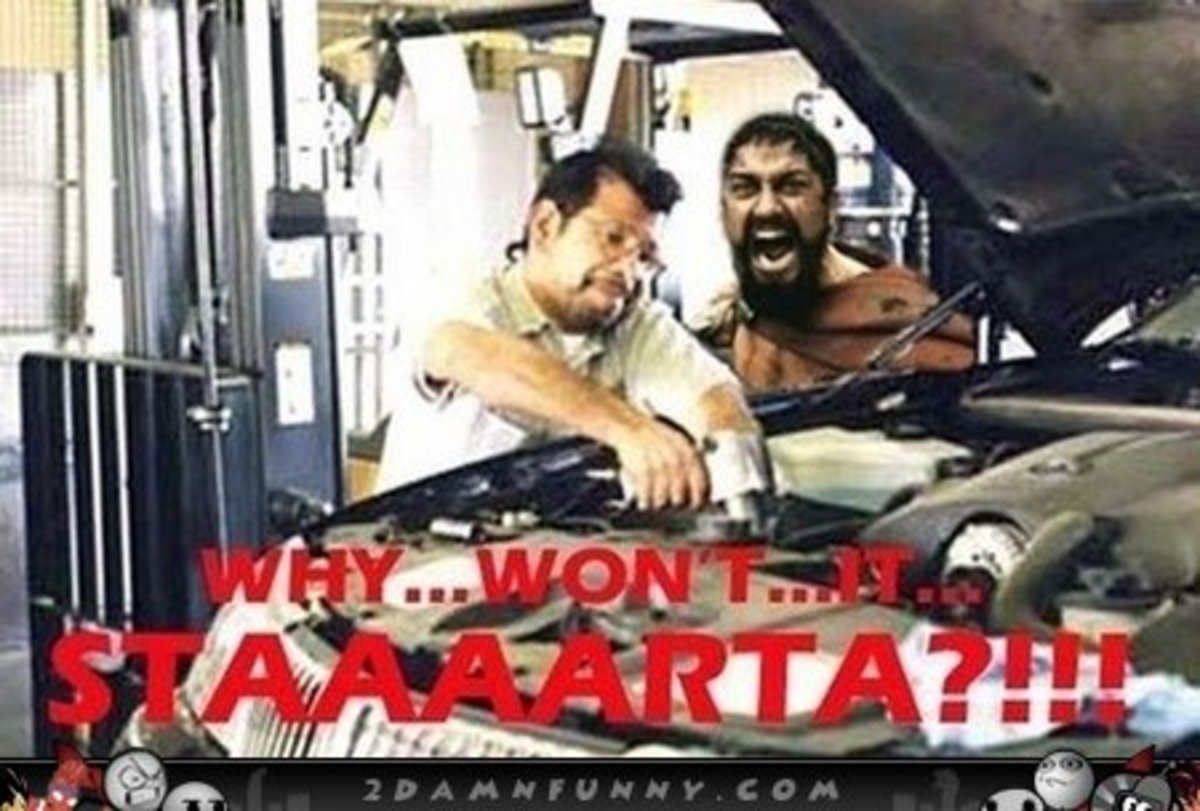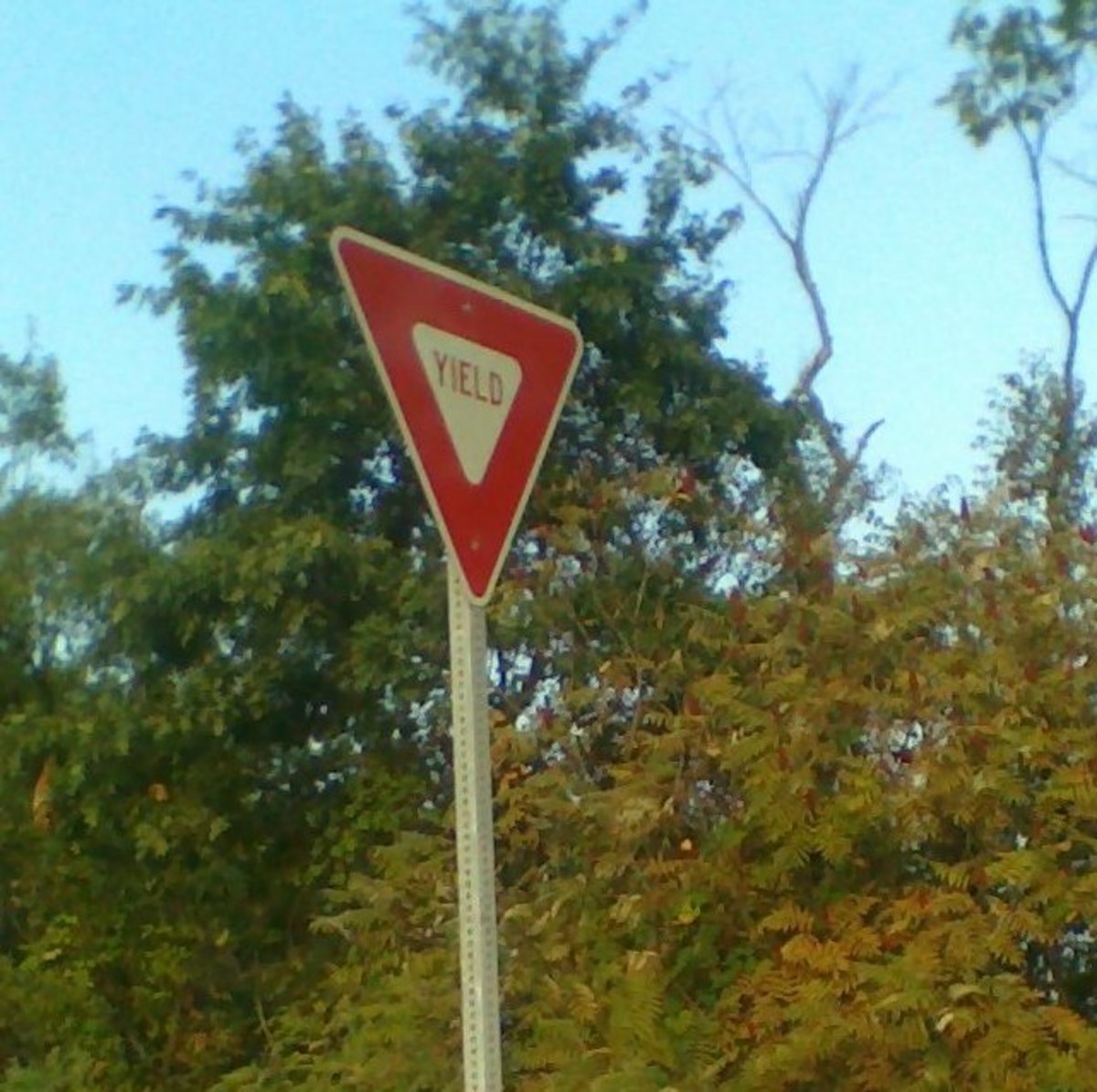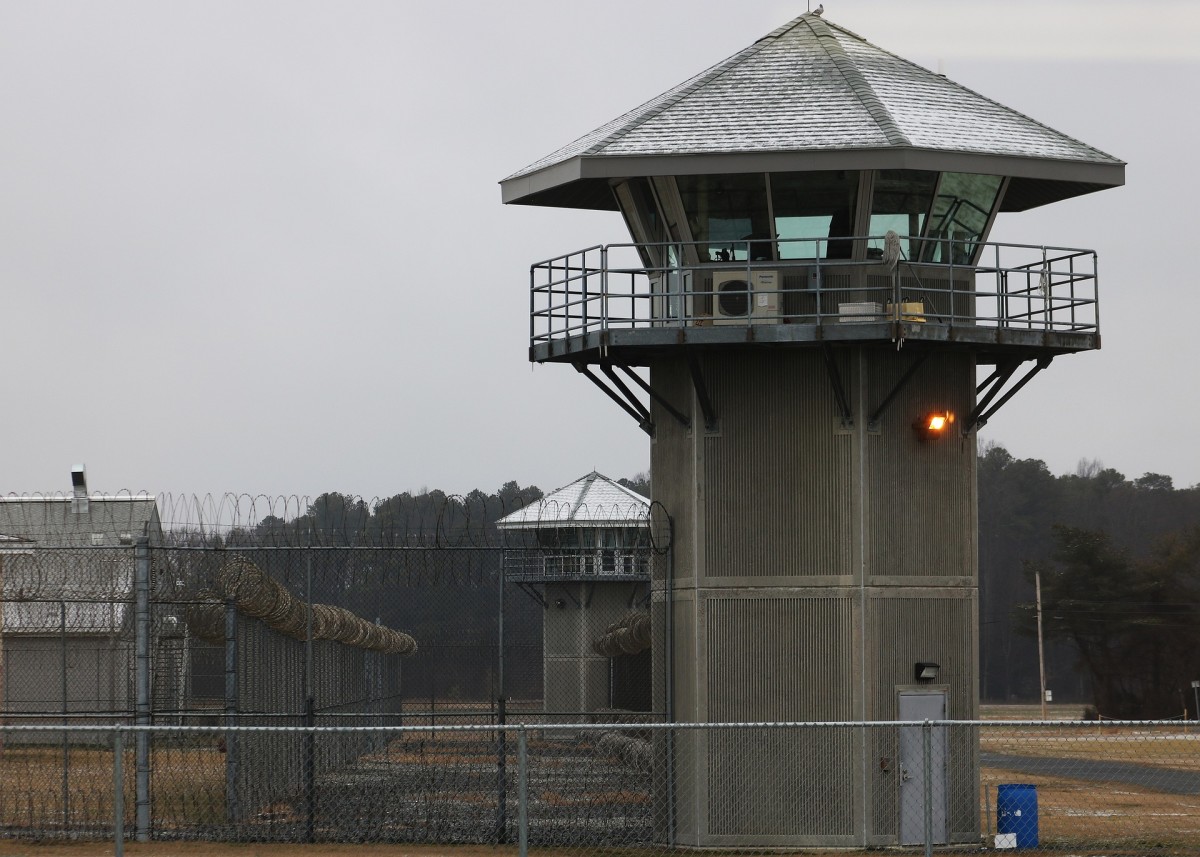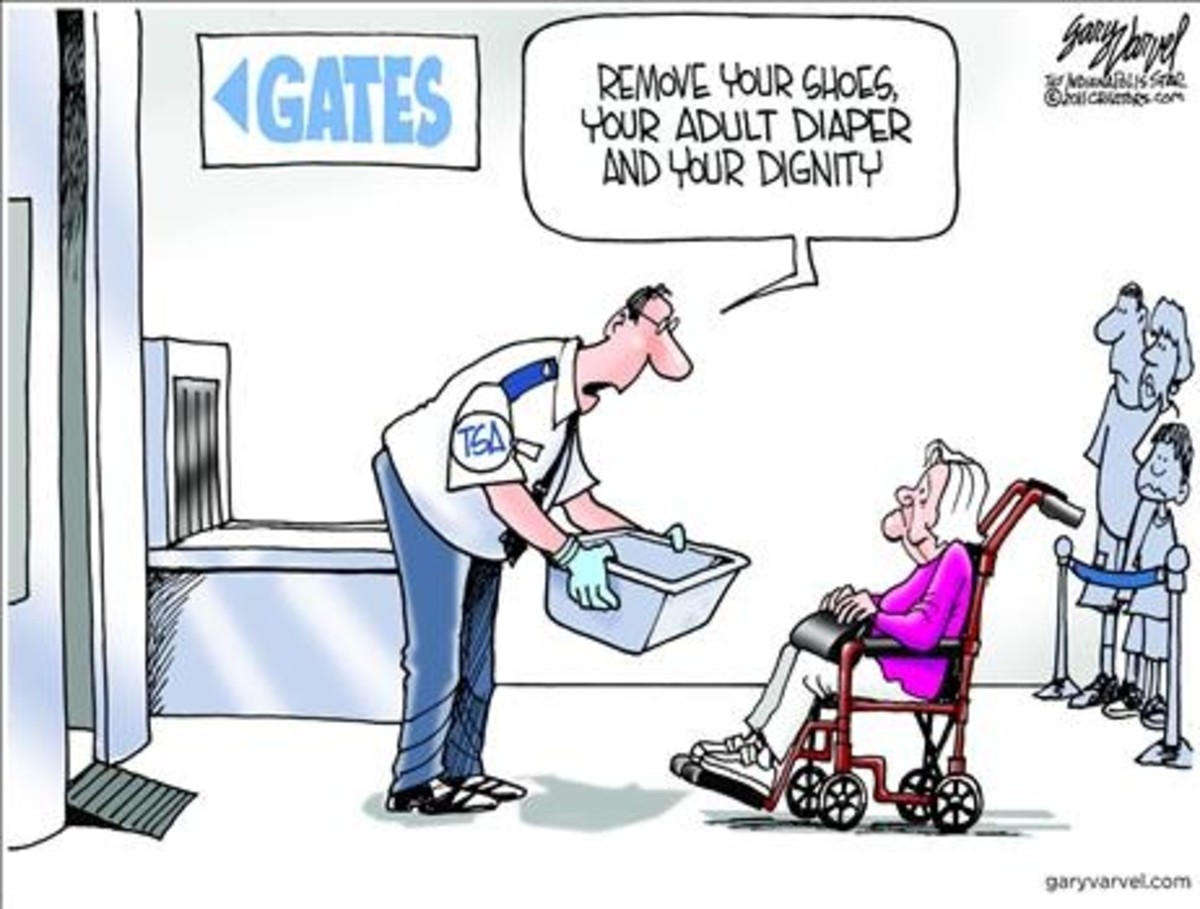The Problems With The Sandra Bland Traffic Stop
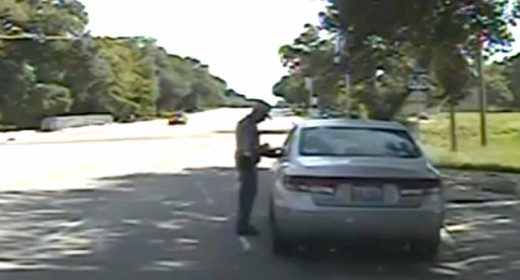
From Minor To Major In Thirty Seconds
In recent years there have been a lot of traffic stops that have gone bad in the news. None is more apparent and froth with mistakes, missteps and errors in judgment than the Sandra Bland traffic stop in Prairie View, Texas in July of this year. Sandra Bland was stopped for failure to signal a lane change and that stop quickly escalated into a physical confrontation between her and the state trooper who pulled her over. Many including Bland herself wondered how such a simple matter could turn into such a complicated situation. It is hard to imagine how a minor traffic violation exploded into a major controversy resulting in arrest and Bland's eventual death.
What happened?
Sandra Bland Being Forced To Exit Her Car
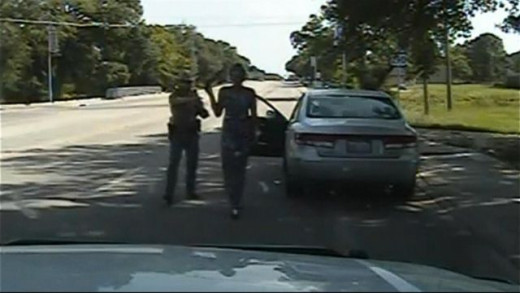
The Traffic Stop
In the dash cam video from Texas state trooper Brian Encinia's car Bland's car can be seen exiting the Prairie View University campus making a right turn and seeming to run or roll through a stop sign while making a right turn while passing Encinia's car which is travelling in the opposite direction on the road Bland just turned onto. Encinia quickly makes a u-turn appearing to follow Bland possibly for running the stop sign. After they pass through an intersection Bland pulls into the right (curb) lane to allow Encinia to pass by her thinking that he wants to do so but instead of passing her Encinia pulls in behind her turning on his flashing lights in the process.
After they are stopped at the curb Encinia gets out of his car and approaches Bland's car on the passenger side checking her license plates as he passes by the rear of the vehicle. Speaking through the passenger window he greets Bland, tells her the reason for the stop and asks for her drivers license and insurance information which she gives him. As she is giving it to him Encinia can be heard asking Bland "What's wrong?" to which no audible reply can be heard. Trooper Encinia then returns to his car and checks Bland's license and insurance information. Upon completing the check he returns to Bland's car on the drivers side while he completes writing the citation which is a warning. As he is writing he asks Bland "Are you okay?" to which bland says "I'm just waiting on you. This is your job. I'm just waiting on you." Encinia quickly retorts "You seem irritated" to which Bland replies "I am, I really am" and then goes on to explain in lengthy detail why she is to which Encinia asks "Are you done now?" Bland answers by saying "Yeah. You asked and I told you so yeah, I'm done now." At this point Sandra Bland and Encinia although feeling some tension and at odds with each other still appear to be trying to be cordial but it is after this exchange that things get out of hand when Encinia asks Bland very curtly if she would put out her cigarette. It is when Bland responds "I am in my own car. Why do I have to put out my cigarette" that things get ugly fast. Immediately Encinia tells Bland "Okay, you can get out of the car now." Bland refuses and an argument turns into a tug of war between Bland and Encinia resulting in Encinia taking out his taser gun and threatening to "light Bland up" if she doesn't get out of the car. She finally does culminating in her arrest, incarceration and eventual death.
This was a simple traffic stop that went horribly wrong. But how? What caused such a simple event to graduate into such a tragic occurrence? Several mistakes that were made by both individuals.
Communication Perspective
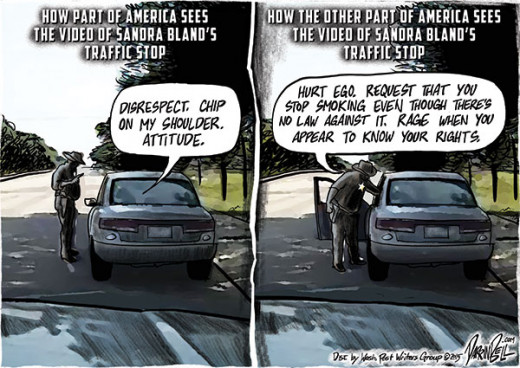
Breakdown In Communication
State Trooper Brian Encinia initiated a completely legal traffic stop. Sandra Bland clearly committed at least two moving violations (running a stop sign/failure to signal a lane change) and whether she liked it or not Encinia had every right to pull her over. After pulling her over and conducting a traffic investigation (checking her license) it is within his discretion to issue her a ticket, a written warning or a verbal warning. He had chosen to give her a written warning but was unable to complete the process because of the controversy that developed. As many of us have heard throughout our lifetimes, "communication is very important to gaining understanding." Communication broke down between these two individuals and the results were disastrous.
The cigarette request by Encinia and his slowness to inform Bland that she was only getting a warning are key issues in the breakdown of communication between these two persons. Preconceived notions and dispositions may have also played a part. Both no doubt had prejudgments of the other that affected their responses and actions. There was definitely a power struggle between the two which started verbally and ended physically but it all started with verbal communication or the lack thereof on Encinia's part.
Although Sandra Bland's attitude was probably not the most endearing that it could be it was tolerable. Most people are somewhat perturbed when they are pulled over for traffic violations and police officers are trained to expect and deal with those attitudes. In addition policemen are trained to try to make the experience as pleasant as possible and most do so by making small talk as Encinia did. Most motorists are not in the mood for small talk so the conversation usually is very laborious and difficult but most policemen and citizens get through it without a major incident. Bland and Encinia didn't and most of it likely hinges on assumptions being made on both their parts.
We all know the tone used in communication is as important as what is said. When Encinia asks Bland to put out her cigarette she immediately points out that she is in her own personal property and asks why she should have to extinguish it. Here is where communication goes awry. Encinia's tone was not the most polite and in fact sounded somewhat annoyed. Bland upon hearing this no doubt decided since he asked in that tone she would not comply but to her credit asked why she had to put it out. She received no answer to her question but instead was ordered to get out of her car......which she also refused to do. Here is the problem: Bland is not required to put out her cigarette true enough BUT a policeman can ask a citizen to do things within a traffic stop that may reduce the interference to him performing his official duty i.e., turn down a radio, quiet a dog that may be barking, quiet children who may be loud, put their hands on the steering wheel and possibly extinguishing a cigarette if it is interfering with the performance of his duty. Smoke can create a visual obstruction. Encinia did not explain the reason for his request and there is where the trouble starts. From there it simply grows. For all practical purposes Encinia's poor effort and ability to clearly explain what he was doing led to much of the communication problem.
The Fourth Amendment To The Constitution
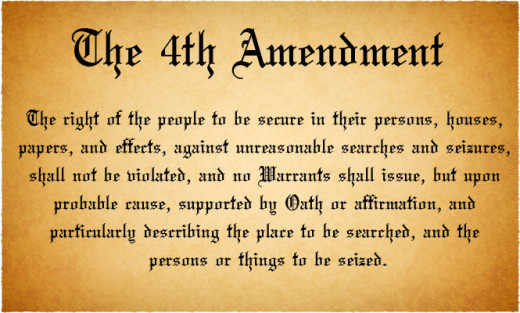
Citizens Rights Vs. Patrolman's Authority
Although the traffic stop was not winning any awards for companionship it was inching along somewhat smoothly until the cigarette request. It was at this time that both individuals who were moving in the same direction (ending the traffic stop) started moving in opposite directions and opposing one another. Bland asserted her right to smoke to which Encinia seemed to take offence to. It is at this juncture he tells Bland to exit the car. At this point both of them make mistakes. Encinia seems to tell Bland to get out of her car because she refuses to put out her cigarette which may or may not be true. The reason it may or may not be true is because in Texas and many other states, a policeman at their discretion, can ask a motorist to get out of their car during a traffic stop. Encinia could have simply exercised his right to ask her to do so at the worst time possible. He further complicates the matter by not explaining why she has to exit her car. He simply keeps repeating "I am giving you a lawful order" which he was but the situation demanded more of an explanation. In addition case law regarding the Fourth Amendment grants policemen the authority to pat down motorists and passengers during a traffic stop without there being indication of a crime (Arizona v. Johnson, 555 U.S. 323 [2009]----- An officer may conduct a pat-down of the driver and passengers during a lawful traffic stop; the police need not believe that any occupant of the vehicle is involved in a criminal activity). Miss Bland refused to exit the car asserting her rights but in actuality she was in error. Officer Encinia had the authority to have her get out of her car but unfortunately for him he picked a bad time to exercise it and his poor timing most assuredly caused the response he received from Miss. Bland.
Miss Bland's mistake was arguing with a law enforcement officer about the law. Although she knew some of her rights she did not know all of the law governing traffic stops so when the conversation went into an area she did not know about she made a critical mistake (not obeying a lawful order). No matter how poorly timed or given Encinia's order to get out of the car was a lawful order that Bland was required to obey. As the old saying goes "ignorance of the law is no excuse" and in this case it wouldn't have been either. Had this case made it to court, and it most likely still will, that fact may have come out.
The bottom line is: it is a bad idea to argue the law or your rights on the street with a law enforcement officer or official. The safest and best place to do that is in a courtroom with the arguing being done by those who know the law. The problem is we live in the information age where all kinds of information is at our fingertips. Many people get hold of that information and liken themselves to be experts or aficionados in an area when they are really only novices with just enough limited information to get themselves in trouble. Most people at a traffic stop grumble and mumble, take the ticket and either pay it or debate it in court which is the proper thing to do. Miss Bland would have been better served to simply obey the officer's requests whether she thought they were fair or not and gone on her way. Instead she chose to debate her rights on the street and resist police direction which in the end cost her dearly.



